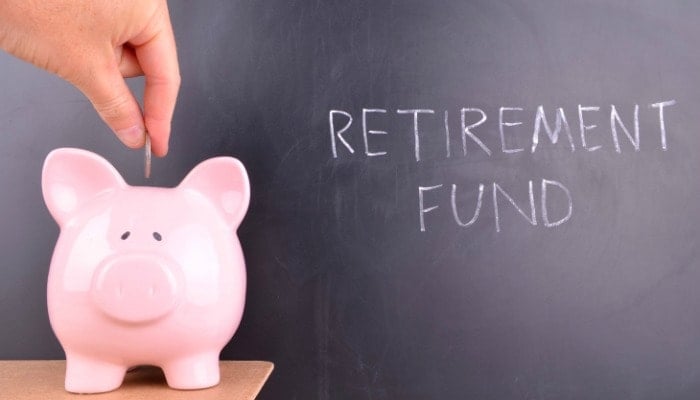
Transamerica Center’s 15th Annual Retirement Survey shows that 78% of workers are saving for retirement right now.
Are you one of those workers?
If not, it’s time for you to start saving. While the thought of budgeting for a retirement fund may seem daunting if you don’t have much expendable income, it can be much easier if you make a few simple changes to the way you live and how you run your rental property business.
Read on to learn how you can make it easier to save for retirement.
How Rental Property Income Can Help Fund Your Retirement
Figure out how much money you need to retire.
Before you can fund your retirement, you need to know how much to save. Here are a few questions you can ask yourself to start thinking about how much money you’ll want to have when you retire:
- How luxuriously do I want to live?
- Will I continue to live in Baltimore County (or elsewhere in Maryland), or will I move to a different state entirely?
- Do I want to travel often?
- How much will my basic living expenses amount to?
- How much am I spending now, on average?
- What extra expenses might I need to account for (healthcare, hobbies, etc.)?
- What will the length of my retirement be?
As you can tell, these questions will help you determine how much you’re likely to spend when you retire. Once you have an idea of that amount, you can estimate how much money to save for retirement.
Remember, it’s always good to save a bit extra for an emergency!
Tip: Use this retirement calculator for more help figuring out how much money you’ll need to retire.
Choose profitable properties and maintain them.

To start saving for retirement, you need to make sure you’re getting a good return on all of your rental property investments. You can do this by taking extra care to pick profitable properties. For help with this, check out our recent blog post about how to tell whether or not a property will be profitable.
Of course, once you’ve invested in a property, you need to be proactive about maintaining it and handling minor repairs in a timely manner. Otherwise, you could find yourself facing bigger and much more costly problems. This is not something you ever want to deal with, much less when you’re trying to save money to retire!
Tip: Properties near college campuses can be profitable due to the consistent demand for student housing. Consider choosing an income property in Towson (near Towson University) Catonsville (near University of Maryland – Baltimore County), or another Maryland area near a post-secondary educational institution.
Pick good tenants.
The tenants you choose can mean the difference between a huge profit and a major monetary loss.
Think about it – if you’re stuck with a terrible tenant who damages your property and fails to pay rent, you could end up losing a lot of money. That’s money you could have saved for your retirement!
As a Baltimore County landlord, you probably already know that you should require all tenants to fill out an application and screen them thoroughly before allowing them to move in to your property. But maybe you’ve let tenants slide on certain aspects of the screening process out of fear that no one else will be interested in renting your property.
Make no mistake – you should avoid doing this at all costs.
It’s true that vacant properties can cost you money, but they rarely cost as much as the long-term issues you’ll face when you place a bad tenant in your property.
Be patient when looking for the right tenant – you’ll thank yourself later when you aren’t dealing with damages and late rent payments.
Save, save, save!

Don’t wait until retirement is right around the corner to start saving – it’s best to start setting money aside in your 20s if you can. If you’re past that age already, start saving today!
As a self-employed landlord, you can’t take advantage of the 401(k) options many companies offer their employees, but the good news is that you may have another option called a Self-Employed 401(k). This plan is available to small business owners who don’t have any employees (other than a spouse), and it is an attractive choice for many landlords because it’s easy to set up and allows for large contributions.
Still, you may be wondering how you can afford to consistently set a significant amount of money aside into your Self-Employed 401(k). Here are a few tips that may help you live more frugally:
- Make sure you’re writing off everything you can as a Baltimore County landlord – You should be taking advantage of tax write-offs including business-related travel costs, certain repair costs, home office expenses, and more.
- Automate your savings. By automating regular contributions to your retirement savings, you can remove the temptation to spend that money elsewhere.
- Negotiate lower rates on your bills. Call your cable company, and let them know you need a lower rate on your cable/internet services. You may be able to do the same for your insurance, car payment, credit card bills, and more. Put whatever money you save from these negotiations towards your retirement.
While these changes might seem small, the savings can really add up over time (and you’ll probably be spending lots of time saving for retirement!).
That being said, remember that it’s perfectly fine to treat yourself to something pricy every once in a while – just make sure you spend most of your time striving to save money however you can.
In Conclusion
Saving for a prosperous retirement is certainly possible as a landlord – it just takes a bit of discipline, strategy, and smart decision-making.
Hopefully the tips we’ve outlined here have helped you start thinking about how you can prepare for retirement.
And remember – if managing your rental properties has you feeling stressed and overwhelmed, our Baltimore County property management team can help with rent collection, rental registration, inspections, tenant screening, and more. Contact us today, and let’s talk about your property management needs.
